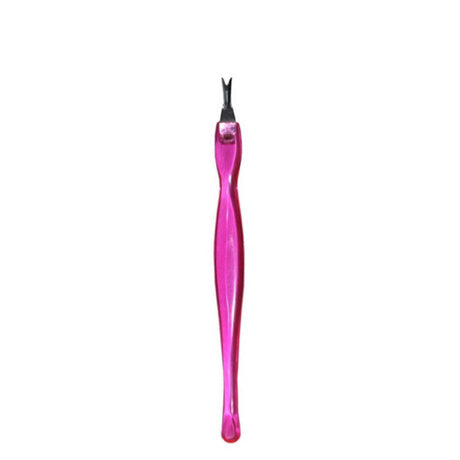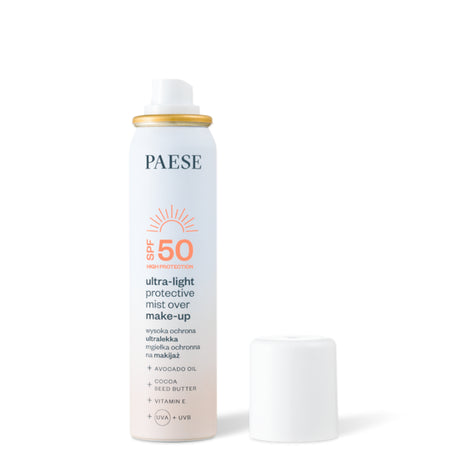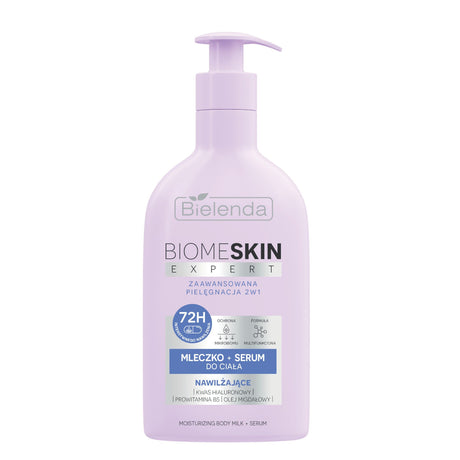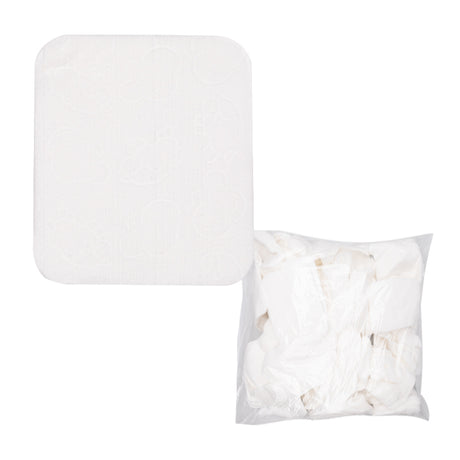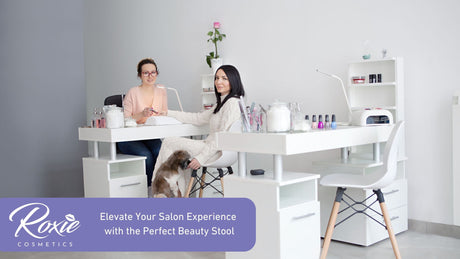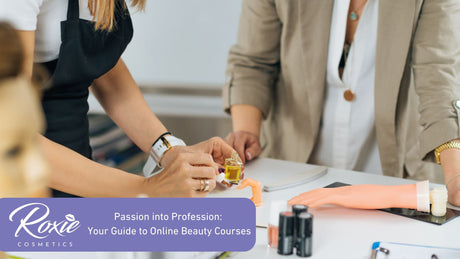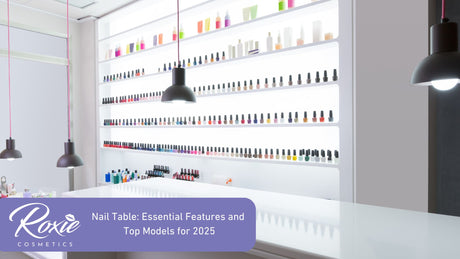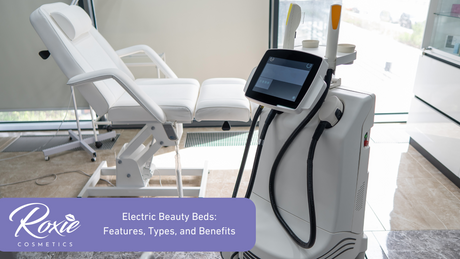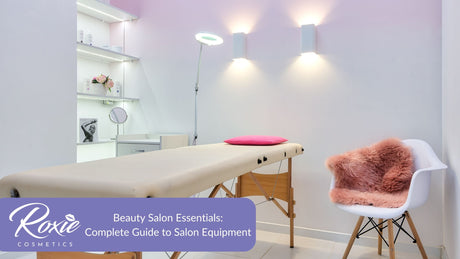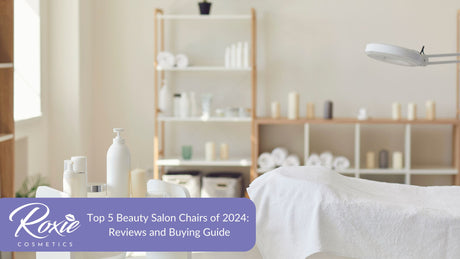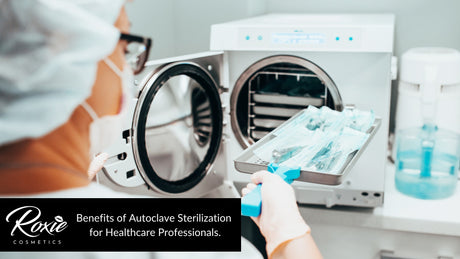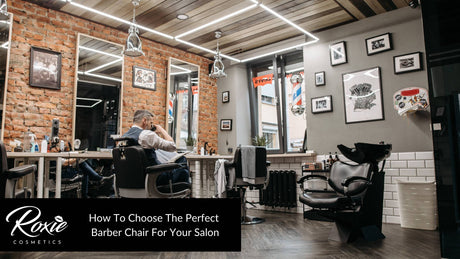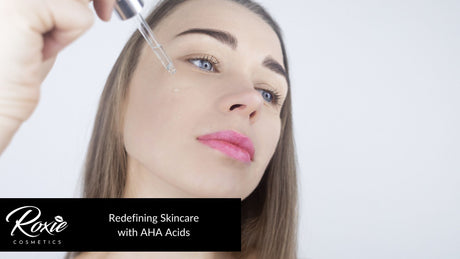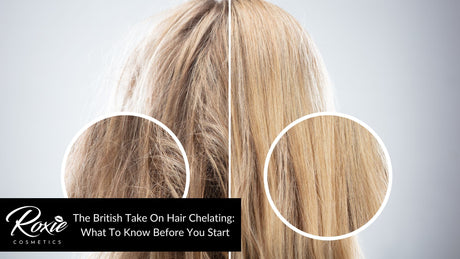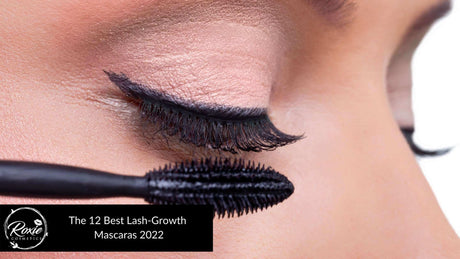An SNS Nails or more commonly known as dip powder manicure is a technique in which the nails are dipped into a coloured powder, rather than the traditional way of painting the nails with nail polish. SNS refers to a specific brand, which stands for Signature Nail System. SNS nails are lightweight and significantly help the nails become healthier and grow out stronger. Dip powder manicure has no scent, no liquid and UV light is not required. It is healthier for the nails than any treatment because the dipping powder is enriched with calcium and vitamins. That means nails won't break easily and will be in better condition. When it comes to nail dip powder brands, SNS is one of the leading among others.
Nail technicians usually apply SNS dipping powder by applying glue to the nail using a brush, then the nail will be dipped with the glue into the pigmented powder. Then, the nail technician will pull it out and shake off any excess coloured powder, after that more glue will be applied to the nail. The last step is spraying the accelerator, the one responsible for drying the coloured powder and making the nails harder. This kind of sealer is what is being used for SNS Nails instead of using a UV light. SNS provides durability and length to the nails while maintaining a more natural-looking finish. Additional benefits include no need for regular salon visits for repainting or infill, and the pigmented powder provides more colour intensity.
What is SNS Nail?
SNS nails or dip powder manicures are made with coloured powder and glue, and these two create a long-lasting bond on the nails. SNS nails can last from 3 weeks up to a month. It comes in a wide variety of colours to choose from. Compared to other nail polishes, SNS comes in powder form and doesn't have a strong acrylic smell. There is also no UV light involved during the curing process, which eventually can damage the nail bed. It works well for anyone who wants a long-lasting manicure.
How do SNS works?
SNS is a powder dipping system wherein a base coat is applied to the nails, followed by the nail being dipped into a coloured powder. This method is repeated multiple times to create the required structure and strength. A UV light is not required for the setting process because the coloured powder has zero dry time.
What are the benefits of SNS?
Listed below are the benefits of SNS.
- No setting with UV lights: SNS nails do not require UV light to cure the dipping coloured powder. People who are afraid of getting exposed to UV light must use SNS to avoid potential damage to the skin around the nails.
- Lasts up to a month: When done properly, dip powder nails last a long time. Expect the nails to remain chip-free for up to a month.
- Easy to do at home: There are a lot of complete DIY home nail kits available on the market. Just like the classic nail polish, dip powder nails can be done at home.
- More colour choices: There are endless colour choices when it comes to dipping powder nails, many brands now offer a wide array of colour choices. Depending on what colour you choose, there would be no trouble finding the powder shade suited for the nails.
What are the risks of SNS?
Listed below are the risks of SNS.
- Hygiene issues: Although there is a good deal of DIY SNS nails available, others may still prefer to visit a salon to do their nails professionally. Make sure to choose a salon that practices good hygiene when doing SNS nails for customers. A separate bowl for some powder should be placed for each customer's application. A manicurist should not dip everyone's nails into the same jar of coloured powder to avoid spreading infections to customers and some sanitary issues.
- May appear bulkier than regular polish: SNS or dip powder nail when dipped too much van create a bulky or very thick look. Tap the excess powder off the nail before applying the sealant to avoid making the nails look bulky.
- Allergic reaction: The bonder used for SNS nails is mostly a monomer, which is a common allergen and can cause irritation to the skin around the nails.
- Removal may damage nails: Pulling off the SNS can be painful and damaging to the nails. It can essentially remove the layers of the natural nail in the process, which can cause the nails to become weak and prone to breakage.
How to apply SNS to your nail?
Whether the nails are done by a professional manicurist or at home, the steps are mostly similar, and it requires special care and attention. Salons may have different techniques, but the steps in doing SNS nails with at-home dip powder kits are totally the same.
Listed below are the steps on how to apply SNS to the nail.
- The nails are prepared: Before starting any manicure, the nails must be cleaned first and should be free from any dirt and oils. Make sure to push the cuticles back and clip any hangnails.
- Apply the Bonder: Once the nails are cleaned and prepped, the bonder can be applied. In this way, it will allow the product to stick to the nail plate and minimizes the chance of lifting.
- Apply the base and powder: Brush on the base of the nails as if you were polishing them, and go one nail at a time. Once a base coat is applied to a single nail, dip it in the dipping jar of powder and repeat the process on each nail. Make sure to brush off any excess powder. Nails can be re-dip up to three times, depending on the desired colour intensity.
- Apply top coat after a few minutes: wait two to five minutes before starting to shape and file nails after applying the activator. After shaping and filking the nails, apply the topcoat. This step will make the product dry and harden.
How long does SNS last?
SNS can last from three weeks up to a month. The durability of SNS will depend on how much you care for them. To keep the nails chip-free for as long as possible, try re-applying a top coat. If there is an obvious regrowth of the nail bed, then the powder manicures can be refilled. Most of the time, the manicurist will have to get the colour removed and start from scratch. Comparing SNS nails vs. acrylic nails, SNS nails are more practical than other nail polish because there is no need for constant re-application and touch up. The acrylic nails on the other hand, are fake hard nails that uses chemical glue to stick into natural nails.
#Roxie Tip:
"Gel Polishes from Victoria Vynn, SPN Nails can last up to 6 weeks."
How much does SNS cost?
The average cost of SNS, according to Vi, a Chief Nail Technician of Figaro London Salon, is £20 to £36 GBP. Depending on what kind of manicure service a customer wants, it varies from SNS application up to the actual removal. Make sure to find a professional and trained manicurist with regard to the removal of SNS, because it can cost damage to nails when not properly done.
How to maintain SNS?

Listed below are ways how to maintain SNS.
- Dry the nails properly: Always dry the nails whenever any nail product is applied. Allowing the nails to properly dry will affect how well they last.
- Avoid hand sanitisers: Hand sanitisers are made from alcohol that can dry out the skin and damage the top layer of the manicure. Avoid using hand sanitisers and just stick to using water and soap in cleaning your hands.
- Re-apply top coat: One good thing about SNS is how this process uses a long-lasting top sealer coat. This keeps the polish and nails protected, making them easier to maintain. Regularly re-applying top coat to the nails will make.
Who are the famous people who wear SNS?
Famous People around the globe have tried using SNS nails, and among them are Hollywood celebrities such as Jennifer Lopez and Margot Robbie. Both actresses were seen wearing SNS nails on red carpet events. Socialites like Kylie Jenner have also been spotted wearing SNS nails. Gigi Hadid is also a fan of SNS nails, and she has been using them to make her nails stand out. Actress Vanessa Hudgens was also photographed wearing SNS nails.
What is the difference between SNS and a regular Nail Polish?
An SNS dipping powder provides extra strength and length to the nails while maintaining a much lighter feel. The SNS nails is one of the best nail polish. It is more durable and long-lasting. Compared to the traditional nail polish, SNS doesn't have a strong, acrylic smell. The regular nail polish is easy to put on and also easy to take off. It also has endless colour varieties to choose from and can be easily done at home. It can be simply applied but may take an hour to dry hard on the nails. Compared to SNS, which can last up to a month, regular nail polish can only last for 2 weeks.
What is the difference between SNS and Gel Polish?
The difference between SNS and Gel Polish is the application process. The SNS uses adhesive, dipping coloured powder and the accelerator process, whereas gel polish uses UV light to stick polish to the nails. Gel polish dries faster and doesn’t have a strong smell. It hardens without damaging the nail bed. The gel polish usually lasts up to three weeks, while SNS can last up to a month without being exposed to the UV light that the gel manicures use. Coloured dip powder is made of the same material acrylic but in powder form. With SNS, the pigmented powder reacts with the primer and top coat, which is why it's hard to predict the actual colour result on the nails.
Is SNS good for your nails?
Yes, SNS is good for the nails, and it is hailed as a healthy manicure. The coloured dipping powder contains nail-fortifying calcium and other minerals. It can also be applied to almost any nail, no matter how short or long the nails are.

Can you apply regular nail polish on top of dip nails?
Yes, regular nail polish can be applied on top of dip nails. The colour can be easily changed without damaging the dip powder underneath. Clean the nails with a nail polish remover first, this won't remove the dip powder but will kill off any bacteria. After the nails dry down, apply the preferred nail colour on top of the dip powder nails. Make sure to let the nails dry -down before applying more thick layers of nail polish.
Is SNS bad for your natural nails?
No. SNS is not bad for the nails, in fact, it can make the nails thicker and stronger. Contrary to what others might think, SNS isn’t bad for the nails. It has nutrients inside the powder that helps strengthen the natural bed. Another thing is that there is no need for harsh UV light to set the colour in place, so the skin will be safe.



